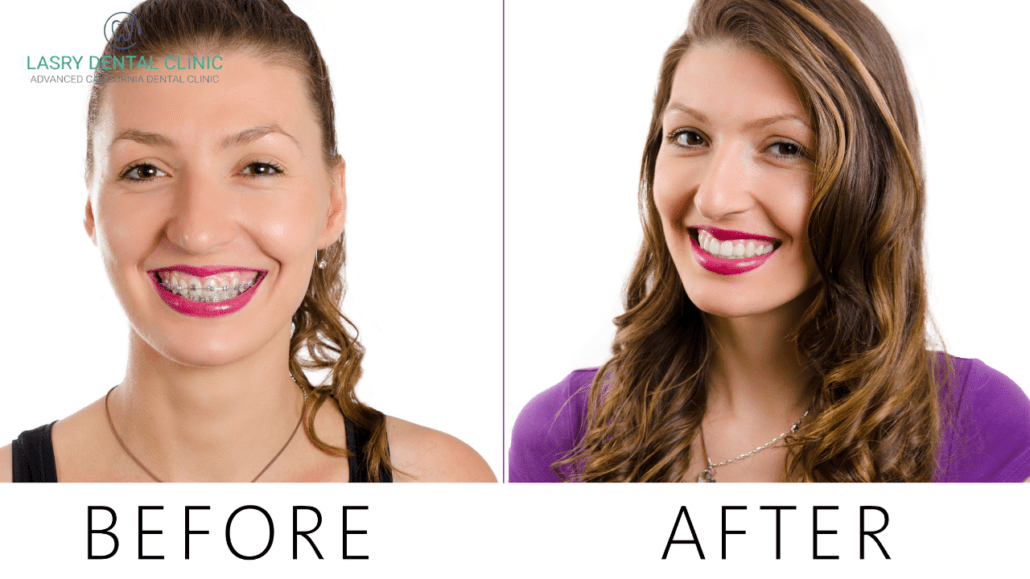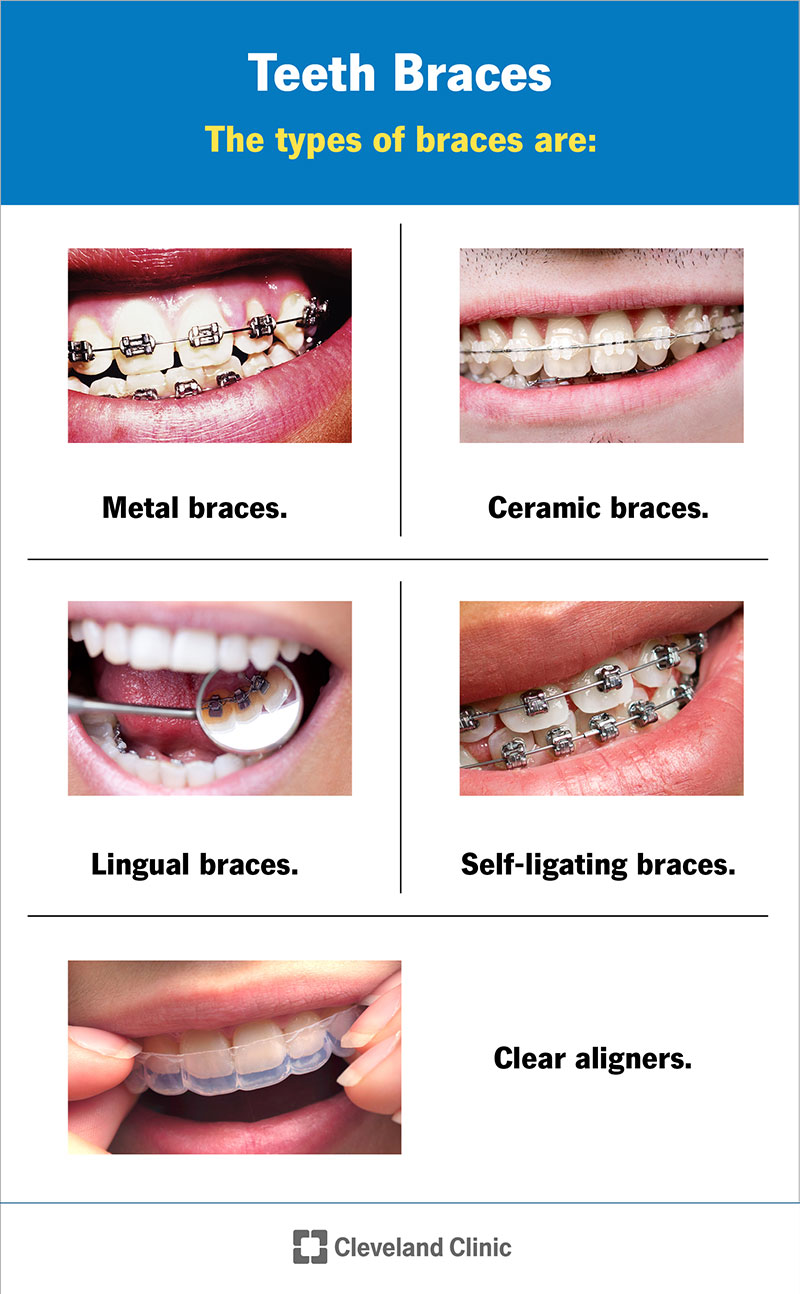Underrated Ideas Of Info About What Happens If I Leave My Braces On Too Long

Brace Yourself The Consequences Of Leaving Braces On For Too Long B
What Happens if I Leave My Braces on Too Long? A Straight Answer (Pun Intended!)
So, you've got braces. Welcome to the club! You're on the road to a straighter, more confident smile. But, like any worthwhile journey, this one requires sticking to the plan. Your orthodontist has given you a timeline, a schedule for adjustments, and a finish line to look forward to. But what if, life happens, and you end up wearing your braces longer than expected? Let's dive into the potential consequences. Think of it like leaving a plant in a pot that's too small for too long; eventually, things start to get a little stressed.
1. Potential Problems from Prolonged Braces Wear
First off, let's be clear: a few extra weeks probably won't cause immediate disaster. But consistently ignoring your orthodontist's recommended timeline can lead to some less-than-desirable outcomes. We're talking about more than just aesthetic concerns here; prolonged braces wear can actually impact your oral health. It's a bit like leaving a band-aid on a wound for too long; the area might get irritated, right?
One of the primary concerns is root resorption. This is where your body starts to break down the roots of your teeth. While some root resorption can happen during normal orthodontic treatment, leaving braces on too long can exacerbate the process. This can lead to weakened teeth, increased sensitivity, and, in severe cases, even tooth loss. Nobody wants that!
Another potential issue is decalcification, which shows up as those unsightly white spots on your teeth after your braces come off. These spots are essentially areas where the enamel has been weakened due to prolonged plaque buildup around the brackets. Maintaining impeccable oral hygiene is crucial during braces treatment, and extended wear time only increases the risk of decalcification. Its like giving cavity-causing bacteria a VIP pass to your enamel.
Finally, there's the increased risk of gum disease. Braces already make it a bit trickier to clean your teeth effectively, and the longer they're on, the more opportunities bacteria have to thrive. Gingivitis (inflammation of the gums) can progress to periodontitis (more severe gum disease) if left unchecked, potentially leading to bone loss and further jeopardizing your teeth. So, think of your braces as a temporary tenant; you still need to keep the house (your mouth) clean and tidy!

When Do Braces Stay On Your Teeth At Kyle Blanco Blog
The Nitty-Gritty
Okay, so we've talked about the general risks, but let's get a little more specific about what's actually happening inside your mouth when you wear braces for too long. It's not just about things looking a little off; it's about the delicate balance of forces and biology at play. Imagine trying to hold a plank for an hour longer than you're supposed to; your muscles are going to start screaming, right? Your teeth and gums are experiencing a similar kind of strain.
2. Unnecessary Stress on Teeth and Bone
Orthodontic treatment works by applying controlled pressure to your teeth, gradually moving them into their desired positions. Your bone remodels itself in response to this pressure, allowing the teeth to shift. However, this process has its limits. If you continue to apply pressure for longer than necessary, you can actually start to damage the supporting structures of your teeth. It's like pushing a car too far past its redline; eventually, something's going to break.
The periodontal ligament, the tissue that connects your teeth to the bone, can also become compromised with prolonged braces wear. This ligament plays a crucial role in maintaining the stability of your teeth, and excessive or prolonged pressure can damage its fibers. This can result in increased tooth mobility and a greater risk of relapse after your braces are removed. Think of it as stretching a rubber band too far; it loses its elasticity.
Furthermore, extended treatment time can lead to changes in the shape and density of your jawbone. While some bone remodeling is essential for tooth movement, excessive bone loss can occur if braces are left on for too long. This can weaken the foundation of your teeth and increase the risk of periodontal problems down the road. It's like eroding the foundation of a building; eventually, the structure becomes unstable.
And let's not forget about the potential for increased discomfort. Prolonged braces wear can lead to greater tooth sensitivity, gum irritation, and even temporomandibular joint (TMJ) problems. Your jaw muscles and joints can become strained from constantly compensating for the pressure exerted by the braces. So, it's not just about the appearance of your teeth; it's about your overall oral health and comfort.

How Braces Work Different Types Of Orthodontics Vondran
Why Adherence to Your Orthodontist's Plan is Paramount
Your orthodontist isn't just guessing when they give you a treatment timeline. It's based on a thorough evaluation of your specific case, including X-rays, impressions, and a careful assessment of your teeth and jaw. They take into account factors like your age, the severity of your malocclusion (misalignment), and your overall oral health. So, when they say your braces need to be on for a certain amount of time, it's not an arbitrary number.
3. Trusting the Expert
The treatment plan is carefully designed to achieve the desired results while minimizing the risk of complications. It's a delicate balance of applying the right amount of pressure, at the right intervals, for the right duration. Deviating from this plan can disrupt the entire process and potentially lead to unforeseen consequences. Think of it like following a recipe; if you skip steps or add ingredients haphazardly, the final result might not be what you expected.
Regular check-ups with your orthodontist are also essential for monitoring your progress and making any necessary adjustments to the treatment plan. These appointments allow your orthodontist to identify potential problems early on and take corrective action before they escalate. It's like getting your car serviced regularly; it helps prevent major breakdowns down the road.
Open communication with your orthodontist is key to a successful treatment outcome. If you have any concerns or questions about your braces, don't hesitate to ask. They are the experts and can provide you with the information and guidance you need to make informed decisions about your treatment. It's a partnership, and your active participation is crucial. Remember, they're on your team, working towards the same goal: a healthy, beautiful smile.
Ultimately, adhering to your orthodontist's plan is about investing in your long-term oral health. By following their recommendations, you can minimize the risk of complications and achieve the best possible results. So, stick to the schedule, maintain good oral hygiene, and keep those appointments. Your future smile will thank you for it!

What to Do If You Think Your Braces Have Been on Too Long
Okay, let's say you're reading this and thinking, "Uh oh, I think my braces have been on longer than they should be." Don't panic! The most important thing to do is to contact your orthodontist as soon as possible. Explain your concerns and schedule an appointment for an evaluation. They can assess your current situation and determine the best course of action. Remember, early intervention is always better than waiting until problems worsen.
4. Addressing Concerns and Seeking Professional Advice
During your appointment, your orthodontist will likely take X-rays to evaluate the health of your teeth and bone. They will also examine your gums and assess the alignment of your teeth. Based on their findings, they can provide you with a personalized treatment plan to address any issues that may have arisen from prolonged braces wear. It's like getting a second opinion on a medical condition; it can provide you with valuable insights and peace of mind.
Depending on the severity of the situation, your orthodontist may recommend removing your braces immediately or making adjustments to your treatment plan. They may also suggest additional treatments, such as fluoride therapy or gum surgery, to address any specific problems. The key is to follow their recommendations carefully and be proactive in your oral hygiene routine. Remember, you're in this together!
In some cases, the damage from prolonged braces wear may be irreversible. Root resorption, for example, can lead to permanent tooth shortening. However, even in these situations, your orthodontist can help you manage the situation and prevent further damage. They may recommend restorative treatments, such as crowns or veneers, to improve the appearance and function of your teeth. It's about making the best of the situation and preserving your oral health for the long term.
Ultimately, the best way to avoid problems from prolonged braces wear is to be proactive and communicative with your orthodontist. Keep your appointments, follow their instructions, and don't hesitate to voice any concerns you may have. Together, you can achieve a healthy, beautiful smile that lasts a lifetime.

Tooth Extraction For Braces Before And After At Delisa Bernardo Blog
Frequently Asked Questions (FAQ) About Braces and Treatment Time
Let's tackle some common questions that often pop up about braces and the duration of treatment. It's always good to be informed, and knowing the answers to these questions can help ease your mind and empower you to take control of your orthodontic journey.
5. Your Burning Braces Questions Answered
Q: How long is the average braces treatment time?
A: It varies! On average, braces treatment lasts between 18 and 36 months. However, the exact duration depends on the complexity of your case, your age, and how well you follow your orthodontist's instructions. Some people might only need braces for a year, while others may need them for longer. Your orthodontist can give you a more accurate estimate based on your individual needs.
Q: What factors can affect how long I need to wear braces?
A: Several factors play a role, including the severity of your misalignment, the type of braces you choose, your age (teeth move more easily in younger individuals), and your commitment to oral hygiene. Missing appointments, breaking brackets, or not wearing your elastics as instructed can all prolong your treatment time. It's like baking a cake; if you skip steps or use the wrong ingredients, it's going to take longer (and might not taste as good!).
Q: Is it possible to speed up braces treatment?
A: While you can't magically make your teeth move faster, there are some things you can do to optimize your treatment time. This includes following your orthodontist's instructions diligently, maintaining excellent oral hygiene, and avoiding habits that can damage your braces, such as chewing on pens or ice. Some orthodontists also offer accelerated orthodontic techniques, such as micro-osteoperforation, which may help speed up tooth movement. However, these techniques are not suitable for everyone, so it's important to discuss your options with your orthodontist.
Q: What happens after my braces come off?
A: Congratulations! But the journey isn't quite over yet. After your braces are removed, you'll need to wear a retainer to maintain your newly aligned teeth. Retainers help prevent your teeth from shifting back to their original positions. Your orthodontist will recommend a specific retainer wear schedule, which you should follow diligently. Remember, wearing your retainer is just as important as wearing your braces in the first place! It's the key to keeping that beautiful smile for years to come.
